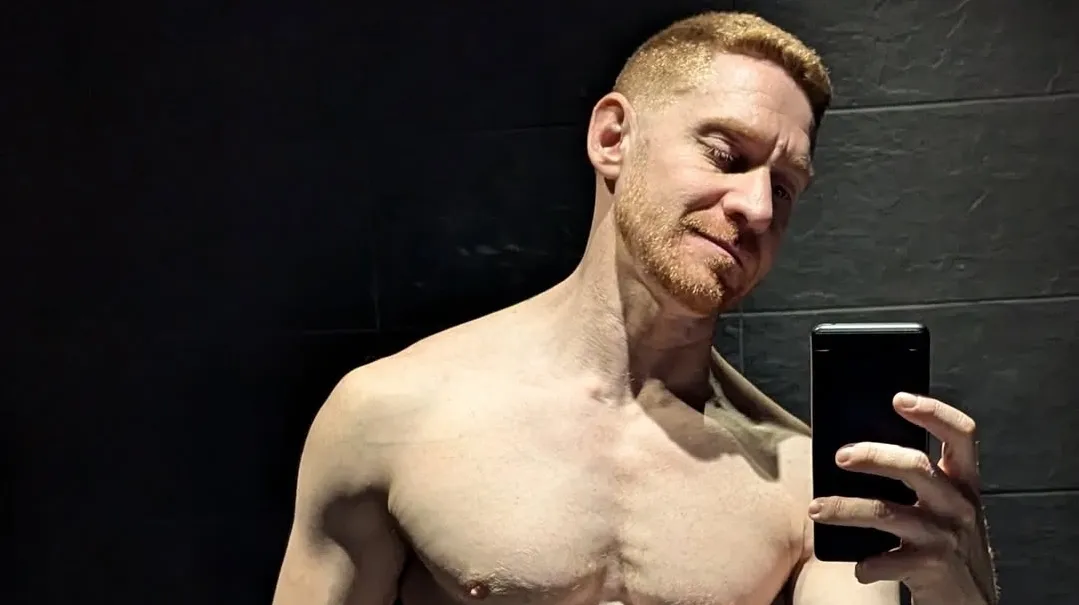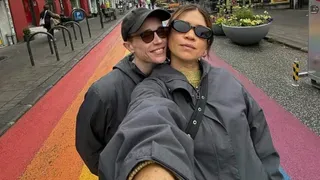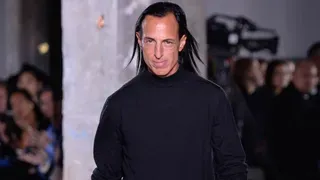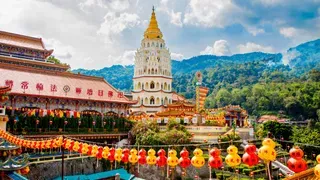November 6, 2014
Gay Porn Auteur Toby Ross Remembers
Kilian Melloy READ TIME: 4 MIN.
Long ago and far away, decades before marriage equality was even a dream, San Francisco was the Land of Oz. The City by the Bay was the one place where "misfits" could go and find a welcoming sanctuary. In those days, misfits often meant hippies, drag queens, and gay teen runaways, many of whom had been thrown out by their families. In San Francisco they could reinvent themselves, and be who they really were, or who they wanted to be.
In those days, porn was shot on film and played in cinemas. Many of the earliest purveyors of gay porn viewed themselves as filmmakers, putting their personal artistic stamps on films that became more than just "f**k films."
It was an unparalleled time of free expression. In the new, feature length documentary "Toby Ross and the 70s," Toby Ross, one of the era's leading gay porn directors, recalls walking up to young boys in donut shops and asking them if they want to be in a movie. He also recalls things that aren't often associated with porn, such as using lighting to create an atmospheric mood, or of his filmmaking style being influenced by European art film directors.
Ross fondly recalls the models themselves, some of whom became personal friends and lovers. He obviously cared about his boys as much as he cared about the films themselves.
Toby Ross has been somewhat neglected by film historians and by gay culture. Perhaps that will change with the release of "Toby Ross and the 70s." Both the film and a same-named companion e-book are now available on Amazon.
Toby Ross speaks to SFGN about his life and work during an era whose like we'll never see again.
Tell us where you're from, about your childhood, your coming out story?
I was born in a small town called Landsberg am Lech to a Jewish mother and a Catholic father. By the age of 8 my mother married an Austrian Jew and we all moved to Israel where I went to school and did two years in the army. I always loved films. In Israel they were very cheap and I went to as many as I could. The triple features were especially popular and I was drawn to the sword and sandal type films. I was particularly fascinated with clever, witty dialogue, something which stayed with me for life. Those theaters were already extremely crowded at 11 a.m. with lots of men out of work looking for a thrill and I was only 13-14. Once in a while one of these men would sit next to me and feel me in the dark. It was a sleazy experience that I always look back to.
How did you find your way to San Francisco?
After finishing school in LA I started hearing stories of how wild and free San Francisco was and at that time LA got old, so I went to the City by the Bay and checked into the YMCA and freaked out when I witnessed the divine debauchery that engulfed the city. It was perfect for a nihilist such as myself and I instantly formed alliances and friendships.
Describe what San Francisco was like in those days.
It's very hard to describe but for me it was a euphoric high that lifted me on a magic carpet and floated me through beautiful soft clouds with thousands of dicks raining down on you as you smile with joyful bliss. It was wild, playful, you could be whoever you wanted to be and the margins of what "gay" was were wider. The mainstream was in the Castro with its clones and that was one scene among many, and yes, there were many others. Now all the fringe types have to fit into what the cookie cutter scene is. In the 70s there were many small communities with their own centers who sometimes had very little in common.
What drew you to the gay porn industry?
The idea of manipulating sexuality and making films that are very personal in a way where, instead of only turning one person in bed, I have a chance to turn on thousands. I always preferred filming a hot man then having sex with them, sex is gone and eventually forgotten, films stay forever. So the lens became my dick, mouth and ass.
What is it about European art cinema that influences you?
I loved the lighting and the attitude in the early Michaelangelo Antonioni. I only do erotic story movies now since I have not made a hardcore film in ten years. My movies are very sexy but without the insertions and framed by a very sexual narrative. You see dick and erections and to me that's enough. I have great scripts, all I need is an investor. Hello? Anybody out there?
What is the historical significance of these early films and how can people be convinced that they are worthy of preservation?
These are time capsules of a certain era and certain places. There are pictures, sure, but the films tell a bigger story. It is also interesting to see how sexuality has changed and how gay people have changed.
Why did you leave San Francisco and what are you doing now?
I left SF because there were a lot of legal problems with people I knew and I decided to work in Europe for a year. Philosophically speaking I've always felt that the Harvey Milk assassination can be equated with the JFK assassination. One was the end of innocence for America and all the "good stuff" (love, trust, joy) was getting squandered. The other murder symbolizes the end of the "party," wildness and innocence as well. AIDS sealed this farewell party and things started changing. Someone asked me the other day if I had the choice to go back in time for a short period where would I travel back to? Old Greece? Hollywood in the 1920s? My answer was San Francisco from 1968-78. That decade was a colorful acid flash that temporarily lit the skies and many people's lives. As we know, things that good usually do not last.
Many of Toby Ross' films, past and present, including "Toby Ross and the 70s" are available for viewing and purchase at his website: www.BigDikFactory.com Membership is required.
Kilian Melloy serves as EDGE Media Network's Associate Arts Editor and Staff Contributor. His professional memberships include the National Lesbian & Gay Journalists Association, the Boston Online Film Critics Association, The Gay and Lesbian Entertainment Critics Association, and the Boston Theater Critics Association's Elliot Norton Awards Committee.







